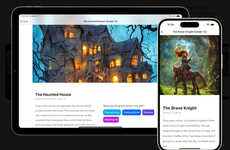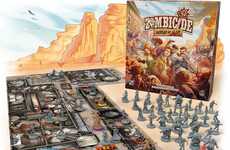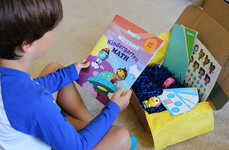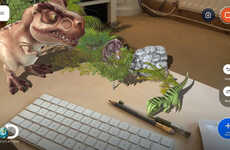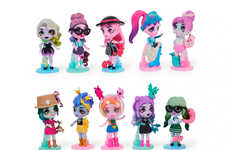
Learn Geography with the Zombie-Based Learning System
Mesel Isaac — June 15, 2014 — Social Good
References: zombiebased & geekwire
Though it may sound far-fetched, Zombie-Based Learning is a real thing that has the potential to engage students in traditional subjects like geography, math, science and more.
Created by David Hunter, Zombie-Based Learning seeks to make subjects that are traditionally viewed as boring, more enjoyable by incorporating them into a narrative about a zombie apocalypse. Hunter, who has a Masters in Teaching, believes that through project-based learning, students will be capable of a higher order of learning than they would otherwise be through memorization alone.
So far, a geography-zombie-based curriculum has been made for grades six to eight. The goal is to make even more zombie-themed subjects should it prove popular enough. English is the subject that is planned next.
Created by David Hunter, Zombie-Based Learning seeks to make subjects that are traditionally viewed as boring, more enjoyable by incorporating them into a narrative about a zombie apocalypse. Hunter, who has a Masters in Teaching, believes that through project-based learning, students will be capable of a higher order of learning than they would otherwise be through memorization alone.
So far, a geography-zombie-based curriculum has been made for grades six to eight. The goal is to make even more zombie-themed subjects should it prove popular enough. English is the subject that is planned next.
Trend Themes
1. Zombie-based Learning - Incorporate traditional subjects into a narrative about a zombie apocalypse to engage students and promote project-based learning.
2. Project-based Learning - Promote a higher order of learning through project-based methods rather than solely through memorization.
3. Gamification of Education - Increase engagement and motivation in students by applying game design principles to education.
Industry Implications
1. Education - Develop innovative methods to make traditional subjects more engaging for students.
2. Entertainment - Apply entertainment elements to education, creating a more immersive educational experience for students.
3. Publishing - Explore new ways to deliver educational content by incorporating immersive narrative experiences to learning materials.
4.4
Score
Popularity
Activity
Freshness

